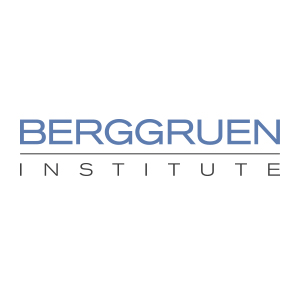21st Century Council
The 21st Century Council is a behind-the-scenes think tank composed of former heads of state, Nobel laureates and international business leaders[1]. Its goal is to follow the G-20 to recommend political, economic and financial changes, to address the problems arising from power shifts from Western-dominated globalization to a multipolar world.
The mission statement (excerpts)
The G-20 has emerged at the formal governmental level as an embryonic institution of global governance that reflects the radical shifts underway in geopolitics. At the informal level, however, no such non-state organization that reflects these new realities has yet been established that can forge a global network of personal relationships, seek to influence policy decisions and help shape public opinion through moral suasion and the voice of reason and experience.
To some extent, groups like the Bilderberg Conference or the Trilateral Commission did this for an earlier era, but are now outdated.
The Nicolas Berggruen Institute proposes to create such a group – The NBI 21st Century Council — as a forum for dialogue and action that recognizes the present powershift in the way it addresses key global challenges from the future of representative democracy to climate change; trade and financial imbalances to nuclear non-proliferation; disparities in income as well as access to knowledge and health care; demographic shifts and the promise and perils of new advances in digital communication as well as science from nano-technology to biomedicine.
In a way, the group would function as a non-state G-20. Its members will include former statesmen and women — seasoned by many years of political experience but now beyond the constraints of politics – as well as leading thinkers of global scope from economics to genomics. The group — with members from Asia, including China, Europe, Latin America and the US — will be nonpartisan and forward looking. Not limiting its focus to the current G-20 agenda, it will focus on the long-term sustainability of an open global civilization enabled by the spread of technology, freer-trade and the reach of the media has created in recent decades. In other words, the sustainability of globalization itself.
Informal gatherings of eminent and connected individuals play an important role because formal groups –such as the G-20 – are too often bound by the short-term demands of national constituencies, narrow diplomatic agendas and the optics of summitry to address issues forthrightly with a long-term, “disinterested” global perspective.
What should distinguish this group from others like the InterAction Council, The Elders, the Club of Madrid or the Trilateral Commission would not only be that it seeks the participation of key Chinese figures of influence. Rather than address a host of ills as single issues, this group would address the relevant concerns in an integrative way that focuses on the structures of good governance. The group will also have an action-orientation. It will seek to accomplish what it proposes.[2]
Meetings
The 21st Century Council will meet twice a year, once in New York in the fall around the time of the United Nations General Assembly and the other time in a location chosen by one if its members. To emphasize the global power shift, efforts will be made to meet in emerging country venues.
